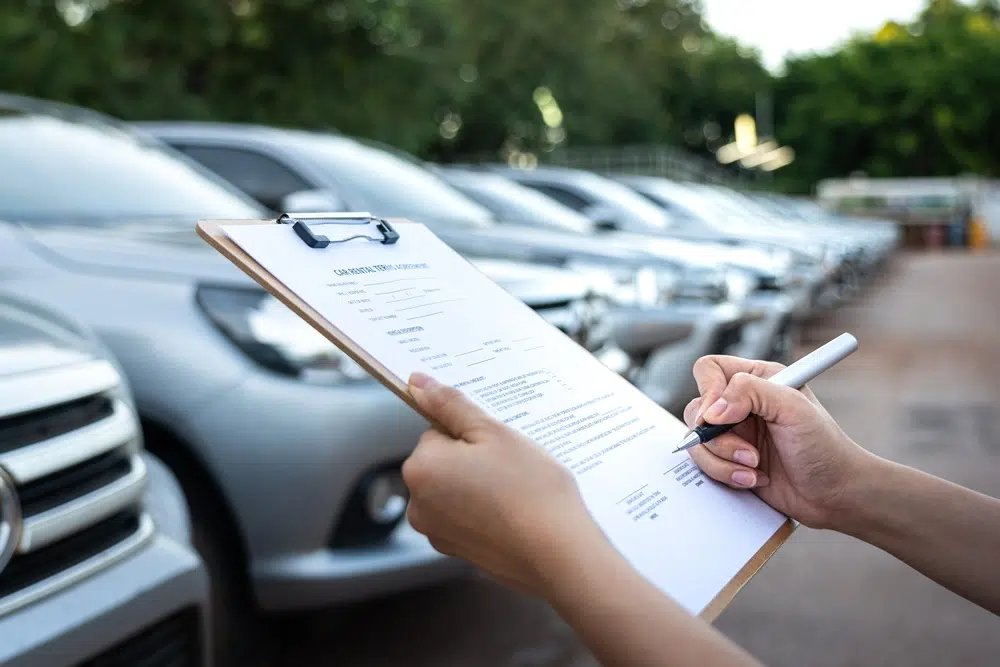What is Fleet Insurance?

If your business depends on a fleet of vehicles, fleet insurance ensures you’re fully covered with minimal hassle. But what is fleet insurance all about? What are the ins and outs you need to know before committing?
We’re here to take you through all the details.
What does Fleet Insurance mean?
Fleet insurance is a policy type that covers more than one business vehicle. (Howden will cover as few as two!)
The major benefit of fleet insurance is that it gets rid of the inconvenience of managing several policies at once. You only have to deal with one contract, one renewal date, and one level of cover. Add that all up, and this comprehensive coverage type will likely save you money and bother.
You can register your fleet in your company’s name or in the name of the company’s director.
Like other types of insurance policies, fleet insurance will cater to your coverage needs. These will be worked out based on the following:
The size of your fleet
Vehicle types
The number of drivers
The degree of coverage you would like
How does Fleet Insurance work?
Fleet insurance covers all the vehicles and drivers that keep your business on the move. Other than that, fleet insurance works similarly to your personal car insurance policy. You pay a fee for your coverage (a premium) to keep your policy active and decide on how much you will have to pay in (excess) if you have to claim. These details will be determined with your provider when you negotiate your policy.
Here are the steps to take to get your fleet protected:
Step 1: Decide what vehicles you’d like to cover
So, what is classed as a fleet vehicle?
Fleet insurance covers the vehicles that are part of your business operations. Types of fleet insurance-covered vehicles include:
Commercial cars and trucks
Mobility and delivery vehicles
Construction and agricultural vehicles
These could be:
Motorcycles
Cars
Vans
Minibuses
Tractors
HGVs and trucks
The higher the number of vehicles in your fleet, the higher the cost. More expensive, specialised vehicles will also increase your payments.
Step 2: Choose your level of coverage
Depending on your budget and how much protection you want, you can decide between levels of coverage — just as you would if you were insuring a single vehicle.
You can choose:
Comprehensive insurance, which provides complete cover on the roads. You’ll be protected regardless of who is at fault, who is hurt, and what vehicle damage is done.
Third-party only, which covers you against damage caused to other people’s vehicles or property
Third-party, fire and theft, which splits the difference, adding protection against damage caused by fire and for theft of one of your vehicles
Step 3: Consider how many drivers you would like to cover
Depending on the needs of your business, you can decide how many drivers you would like to insure under your policy.
You can have all your vehicles insured for any authorised drivers within your company or only extend your coverage to particular drivers for specific vehicles. Basically, you get to tailor-make the policy to suit the particular needs of your employees.
A pro tip here? Less experienced drivers and those whose driver histories deem them more of a risk may mean your policy increases in price.
Step 4: Choose a professional insurance provider that understands your needs
Opting for an experienced insurance provider that will take the time to understand your unique circumstance and create a package that suits them is important. It can make managing your insurance, and claiming against it, so much easier.
What to consider when choosing Fleet Insurance
Right! So you’ve decided it’s time to cover your fleet. Now it’s time to get cracking with the details.
Assess the risks involved: Risk factors include everything from your drivers’ level of experience, to how much your vehicles need to be on the road, to whether you’re transporting dangerous goods.
Determine the size of your fleet: Before you talk to your insurance provider, ensure you have a detailed inventory of the fleet you would like to cover.
Work out the nature of your fleet: Some common fleets include:
Own goods fleet, where your vehicles are intended to move your operations’ supplies. Say you have a construction firm, for example. An important job of your fleet is to get your equipment from one location to another.
Logistics, courier and transport fleet, where the focus of your company is on sorting out the transportation of goods and equipment for others. It’s important to speak to your insurance provider if your business transports hazardous goods or waste products.
Bus, coach, or taxi fleet, where your business specialises in ferrying people from one place to another.
Vehicle hire fleet, where your customers hire your vehicles for personal or commercial use. It’s crucial to ensure you are correctly insured to cover what could happen when someone outside your company is at the wheel.
Bluelight, where your vehicles are used in emergency services
Customise your fleet insurance policy: Decide on the kind of policy that best suits your business. Some options to choose from include:
Fixed fee, where you pay an annual lump sum for your fleet insurance.
Mileage-based insurance, where your premiums are worked out based on how much your fleet is used. This is typically a more cost-effective option.
Many insurance providers may also have programs in place that reward good driving behaviour and offer incentives for well-maintained vehicles. If you keep your fleet in stellar condition, you could reap the rewards!
The process of filing a fleet insurance claim
Insurance is one of the few things we pay for that we hope we never have to use — but life happens, and at some stage, you’ll be very thankful you put the time and energy into properly protecting your business.
When the time comes to claim, your fleet manager should contact your insurance provider. It’s important for the fleet manager to be the contact person here as they’re most likely to have the most up-to-date detailed information on your vehicles and drivers.
They can do so by:
Calling your insurance company.
Making a claim online. Howden has a SMARTClaims Commercial Motor Claims service that allows you to claim directly through an easy-to-use portal.
FAQs about fleet insurance
Can anyone drive on fleet insurance?
As a fleet manager, you have the option to cover your whole team by stipulating in your policy that any authorised driver is eligible for cover. Alternatively, you have the choice to name specific vehicles to specific drivers.
How much does fleet insurance cost (UK)?
Unfortunately, we’re not going to give you an easy answer here. When it comes to fleet insurance costs, the spectrum is broad. From the needs of the smallest two-motorcycle delivery service to the largest national logistics company, fleet insurance comes in all shapes, sizes and prices.
The factors that come into the cost of a fleet insurance policy include:
Number of vehicles
Types of vehicles
Drivers’ age and histories
How much coverage you want (comprehensive, third-party, fire and theft or just third-party)
Business location
The best thing to do is chat with a professional insurance provider so that you can get an accurate quote.
To sum up
If your business requires more than one vehicle to run, it’s worth considering fleet insurance. By having your entire set of vehicles under one policy, you can save time, hassle and money.
Fleet insurance can be customised to the specific needs of your company. To figure out the most appropriate deal for you, your insurance provider will take several factors into account, such as:
The size of your fleet
The types of vehicles you need to cover
The levels of coverage you would like
How many drivers you would like to insure (or if you’d like to have insurance for any eligible driver)
The nature of your fleet and what you will be transiting
Whether you’d like to pay a fixed annual premium or mileage-based insurance
Getting fleet insurance quotes doesn’t need to be complicated or stressful. Simply contact Howden, and we’ll put you in touch with a member of our specialist business vehicle team.
Also read:




